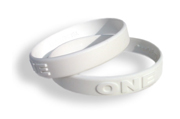
Today I watched the movie "Rent". I saw the stage play about five years ago in San Francisco, and I remember being impacted by it. But as I rented the movie, I could not remember exactly why. This time something was different. I could see what the play was about. Love.
"You'll never share real love until you love yourself. I should know." (Roger, from Rent)
This hit me. The movie made me realize how much I have missed out on real love in my life. Don't get me wrong. I have been loved by many. But I have not loved the way my heart knows I can. And more importantly, I didn't love myself. This is a profound awakening for me about how much I missed out on loving people. It is in this simple act that I am made complete. It is the purpose for which I was born. It is the marrow of my bone, and the beat of my heart.
I know why I didn't love. Because I didn't love myself. I was wounded. I suffered the crushing effects of divorce in my family and I went inward, lost in my childhood interpretations of my own value. I had a father who was wounded as well. I never doubted his love but he didn't know how to show me what it meant to be whole. He knew how to play cards with me. Gin was our favorite. I don't blame him.
I didn't know how to love myself. I didn't know how to accept who I was and be okay with my flaws, to laugh at their silliness and enjoy life. Because of this, I didn't know how to love others. That is until love broke into my heart.
Learning to love begins with love in our own heart. It begins by finding our own dignity and value. It begins by recognizing who we are as children of God and embracing the deep, deep significance of this once thing. We are designed to love...but we have to be loved first.
Learning to love is a rich experience. I cry more now as I see and recognize the beauty around me. I used to not cry. Not because I didn't want to but because I believe my heart was closed to seeing the beauty within everyone around me.
My favorite scene is the Aids group where they sing, Will I. It is a profound recognition of the moment when they are aware of their brokeness and their need for each other. In this moment, they find their own dignity and hold tight to the moment when they need it most.
I love Rent. It's a beautiful story about loving each other, holding onto the love and not letting it go. Make sure you watch it.


